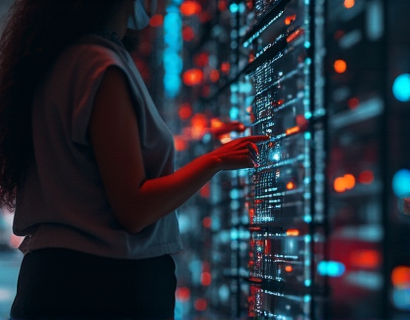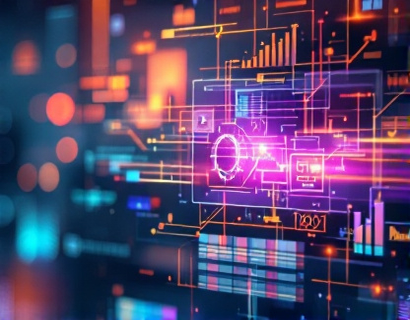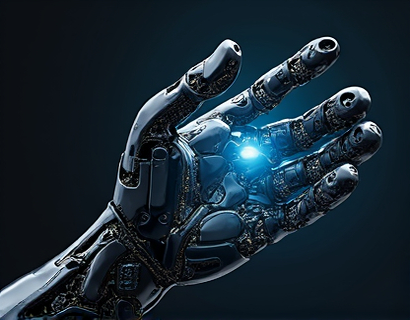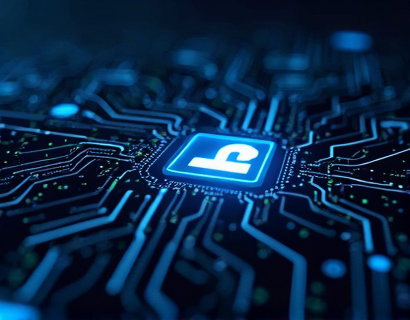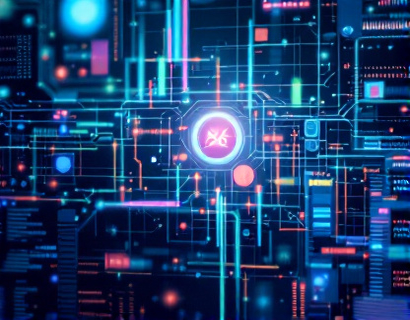Crypto and AI Power: Transforming Digital Engagement with Next-Gen Ucosystem Innovations
The intersection of blockchain technology and artificial intelligence (AI) is giving rise to a new era of digital engagement, characterized by enhanced security, unparalleled personalization, and innovative interactions. This transformative integration is not just a technological advancement but a paradigm shift in how we interact with digital platforms and services. For tech enthusiasts and professionals, understanding the dynamics of this fusion is crucial, as it holds the key to unlocking new possibilities in the digital landscape.
The traditional digital engagement models are being redefined by the synergy between blockchain and AI. Blockchain, with its decentralized and immutable ledger, provides a secure and transparent environment, while AI brings intelligence and adaptability to the table. Together, they create a powerful ecosystem that can revolutionize various aspects of digital interaction, from user authentication to content delivery.
Enhanced Security through Blockchain and AI
One of the most significant benefits of integrating blockchain and AI is the substantial improvement in security. Blockchain's inherent properties, such as decentralization and cryptographic hashing, ensure that data is tamper-proof and secure. AI, on the other hand, can detect and respond to potential threats in real-time, enhancing the overall security posture of digital platforms.
For instance, AI-driven security systems can analyze patterns and anomalies in user behavior to identify and mitigate fraudulent activities. These systems can learn from past incidents and adapt to new threats, providing a dynamic and robust defense mechanism. When combined with blockchain, the integrity of the data used by AI systems is guaranteed, reducing the risk of false positives and ensuring that security measures are based on accurate information.
Moreover, blockchain can facilitate secure and private data sharing between different AI systems. This is particularly important in industries where data privacy is paramount, such as healthcare and finance. By using blockchain to manage access and consent, AI applications can operate with greater trust and reliability, knowing that the data they process is both secure and compliant with regulatory standards.
Personalization at Scale with AI and Blockchain
Personalization is a critical aspect of modern digital engagement, and the combination of AI and blockchain offers unprecedented capabilities in this area. AI algorithms can analyze vast amounts of user data to create highly personalized experiences, tailoring content, recommendations, and interactions to individual preferences and behaviors.
However, the effectiveness of AI-driven personalization is heavily dependent on the quality and integrity of the data. This is where blockchain comes into play. By using blockchain to manage user data, platforms can ensure that user information is accurate, up-to-date, and controlled by the users themselves. This not only enhances the personalization process but also builds trust and transparency with users.
For example, a blockchain-based identity management system can empower users to grant or revoke access to their data for different AI applications. This granular control allows for more precise and context-aware personalization, as AI systems can access only the relevant data needed for a specific interaction. Additionally, blockchain can facilitate micro-transactions for data access, creating a fair and incentivized data economy.
Innovative Interactions through AI-Powered Ucosystems
The integration of AI and blockchain is not only about security and personalization; it is also about creating new forms of interaction that were previously unimaginable. AI-powered ucosystems are emerging as the next generation of digital platforms, where users can engage in meaningful and intelligent ways.
One of the key features of these ucosystems is the use of smart contracts, which are self-executing contracts with the terms directly written into code. Smart contracts can automate and enforce various interactions, from content creation and distribution to reward mechanisms and community governance. This automation reduces friction and ensures that interactions are fair and transparent.
AI-driven chatbots and virtual assistants are another integral part of these ucosystems. These AI entities can understand natural language, learn from user interactions, and provide personalized assistance. They can handle customer support, guide users through complex processes, and even facilitate creative collaborations. The combination of AI's conversational capabilities and blockchain's trustless environment creates a seamless and secure user experience.
Use Cases of AI and Blockchain in Digital Engagement
To better understand the practical applications of AI and blockchain in enhancing digital engagement, let's explore a few use cases:
- Decentralized Social Media: Platforms like Mastodon and Diaspora are leveraging blockchain to create decentralized social networks. AI can enhance these platforms by curating content based on user preferences, detecting and filtering misinformation, and managing community moderation through smart contracts.
- Tokenized Rewards Systems: Companies are using blockchain to create tokenized reward systems that incentivize user engagement and participation. AI can optimize these systems by analyzing user behavior to determine the most effective reward structures and dynamically adjusting them in real-time.
- Supply Chain Transparency: In industries like fashion and electronics, blockchain can provide transparent and verifiable supply chains. AI can track and analyze data from these chains to ensure ethical practices, predict demand, and optimize inventory management, all while providing consumers with detailed and trustworthy information about the products they purchase.
- Decentralized Finance (DeFi): The DeFi space is rapidly evolving, with blockchain-based financial services that offer lending, borrowing, and trading without intermediaries. AI can enhance DeFi platforms by providing risk assessment, fraud detection, and personalized financial advice, all within a secure and transparent framework.
These use cases demonstrate the potential of AI and blockchain to transform various sectors by creating more secure, personalized, and interactive digital experiences. As the technology continues to mature, we can expect even more innovative applications across different industries.
Challenges and Future Directions
Despite the numerous benefits, the integration of AI and blockchain in digital engagement is not without challenges. One of the primary concerns is the scalability of blockchain networks, which can struggle to handle the high transaction volumes required for widespread adoption. However, advancements in layer 2 solutions and cross-chain interoperability are addressing these issues, paving the way for more scalable and efficient ucosystems.
Another challenge is the regulatory landscape, which is still evolving in the realm of blockchain and AI. Ensuring compliance while maintaining the decentralized and innovative nature of these technologies requires collaboration between regulators and industry players. Education and advocacy will play crucial roles in shaping a favorable regulatory environment.
Looking ahead, the future of AI and blockchain in digital engagement is promising. As technology advances, we can expect more sophisticated AI models that can better leverage blockchain's unique properties. The development of more user-friendly interfaces and tools will also democratize access to these technologies, enabling a broader range of developers and businesses to create innovative ucosystems.
In conclusion, the integration of AI and blockchain is not just a technological trend but a fundamental shift in how we approach digital engagement. By enhancing security, personalization, and interaction, this synergy is set to redefine the digital landscape, offering endless possibilities for tech enthusiasts and professionals alike.



